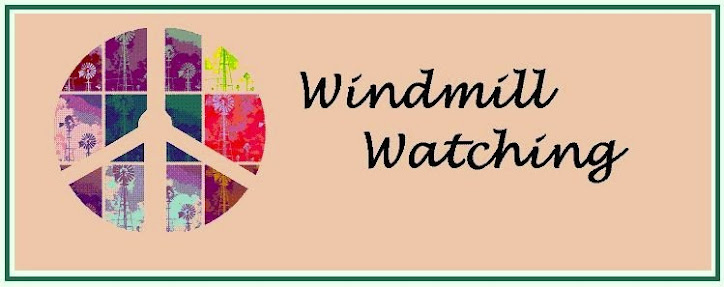[Exactly as appeared at the beginning of the dissertation.]
[But don't worry, I promise I'm not going to post the whole dissertation here. Just some interesting bits.]
[Also, watch for the super fun British spelling! Got my PhD in Wales, remember?]
Early on in my PhD programme, all of the Creative Writing students were gathered into an ancient-seeming room. We sat at a very long table in chairs with very high backs. The air was musty--both too hot and too cold all at once. Faculty members sat calmly at one end of the table, while Graeme--my soon-to-be-adviser--paced up and down the room in his normal frantic way.
‘Tell me...’ He spoke in an Australian accent, but being utterly unfamiliar with accents and utterly unfamiliar with Wales, I thought that maybe he was English. ‘What makes for a successful book?’
After a few moments of silence in which it became abundantly clear that Graeme wanted us to... answer... people began offering ideas.
‘One that leaves you feeling fulfilled,’ said a blonde woman from London. (She was, incidentally, married to a rock star.)
‘One that’s raucous and fun,’ said a man from Scotland who looked equally as raucous and fun until he sighed and slumped in an obviously put-on despair as he said, ‘Though I suppose you want me to say something about how it’s lit’ary.’
There were a few more answers, and I could tell that there was one, possibly obvious, answer that no one seemed to be saying. I raised my hand, feeling tentative as I did because I half knew what would happen when I said it. Graeme called on me.
‘Well...’ My speech was halted as I began. ‘I write young adult fiction... and YA is completely defined by rhetorical context... And if we look at it from a purely rhetorical stance... where you have the interactive relationship between the author/audience/text... and you judge the value of the text based upon the success of the author/audience interaction...’
I closed my eyes.
‘Then a successful book would be a book that... sells.’
One beat of silence.
And then least seven people erupted in protest.
One said something under her breath about ‘American capitalists.’
Graeme got a wicked smile.
And I wondered: if authors want their books to sell (and most of us do), why do we all protest so loudly against the idea that the success or failure of a book has to do with the book, itself?
Simple answer, really: no one wants to be told they’re rubbish.
Mix into that the fact that the sales of a book are ever so much more complicated than the quality of a book alone. We’ve all seen trash that hits the top of the charts. We’ve all read undiscovered gems.
What accounts for the difference?
Internalizing the protests of the room, my lingering questions about whether or not sales could be used as a measure of audience-resonance, and the wickedness of Graeme’s smile, I decided that it might not be a bad thing to figure out.
The question: how?!
All of the theorists that I’d read up to that point seemed to approach the question deductively. There are certain rules of fiction: plot, characterization, action, pacing, etc. If you can quantify the rules, you can evaluate books based upon their adherence or departure from said rules. The problem with deductive thinking, of course, is that your ability to be right or wrong utterly depends upon how correct your axioms and assumptions (i.e. rules) were in the first place. It’s the problem noted by Stephen King when he proclaims that ‘most books about writing are filled with bullshit’ (King xvii). We might think we know why something is, but when we have to measure it against something as solidly quantitative as the marketplace, if we limit our theoretical frameworks to those that are largely deductive, we can’t always make accurate predictions.
(Un?)Fortunately, however, before I began writing young adult (YA) fiction, I spent three years as an undergraduate engineering major--complete with hours upon hours spent in smelly laboratories wearing a stained lab coat with banana-shaped buttons. (The buttons seemed cool at the time.) My latent science instincts said that there might be a chance to make accurate predictions by utilizing something other than deduction. In other words, I’d have to look at books. I’d need a theoretical framework that allowed an inductive approach. Perhaps even one with a statistically-gathered sample, a blind process, a research procedure--i.e., one completely exhausting just to think about.
We creative writers aren’t known for our affinity to the inductively procedural, but the idea that an inductive approach might be the one way to say something new, immediately applicable, and relatively conclusive on the subject of sales versus resonance, was something that I couldn’t let go of. If I really wanted to know what makes a book sell, I was going to have to work within a theoretical framework that allowed a methodised observation of the book market. And that meant I was going to have to embrace the very thing I once rejected in favour of art: the scientific method.
[Go ahead and pause while we all shudder.]
The brilliance of the scientific method is the methodisation, itself. There is no making of pure guesses, no reliance upon emotion. And, ultimately, with the appropriate methodisation, you can study even emotion without becoming... well... emotional.
“Aw, crap.” I thought to myself. “I might actually have to use that calculus I learned after all.”
So that is why, Tyler, this dissertation is dedicated to you.

3 comments:
You have me on the hook! I totally want to
read your dissertation to see what you concluded!
Way to fly into the faces of the fiction writing academics. I love this.
I'm intrigued! Keep me in your loop!
Post a Comment